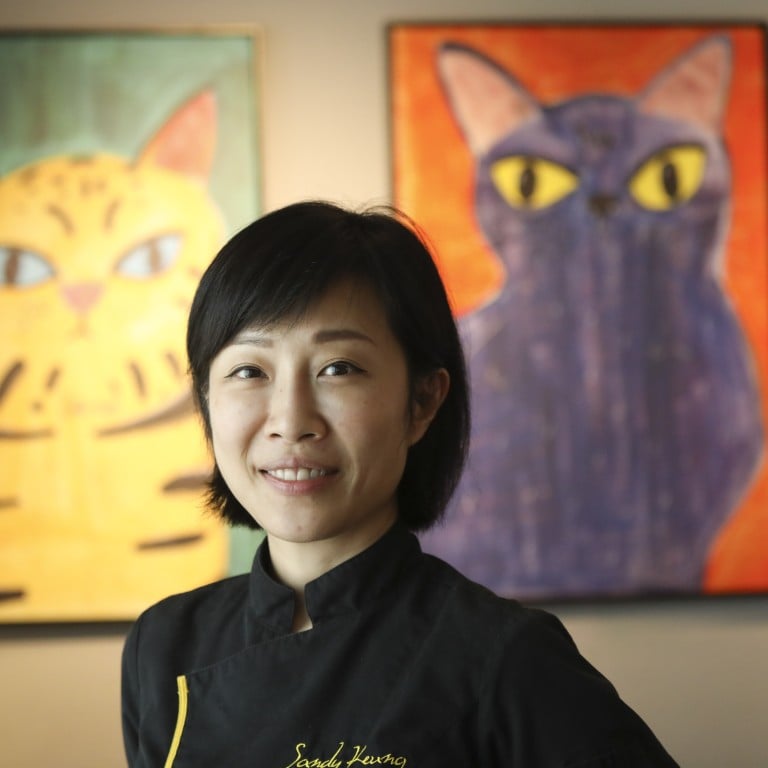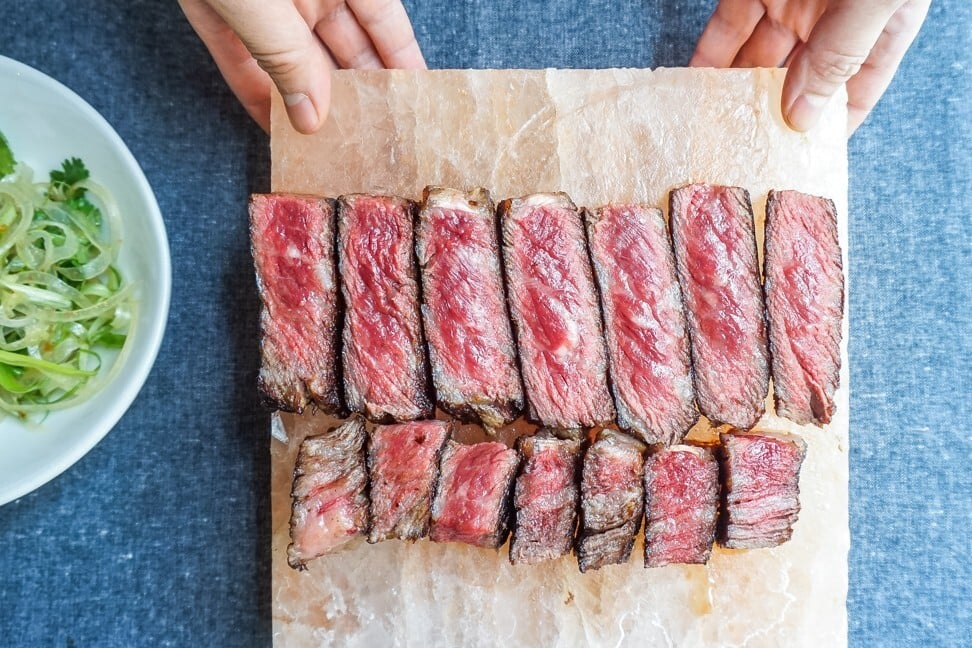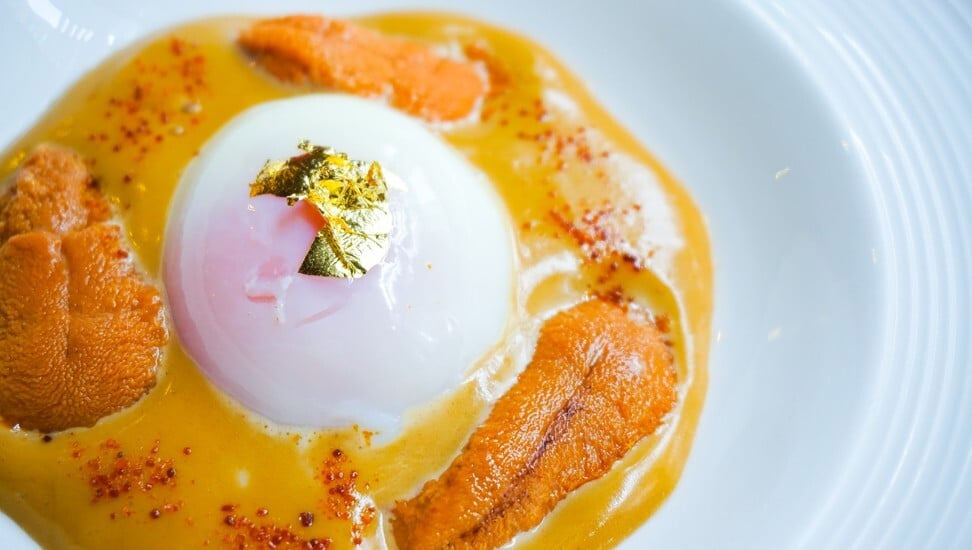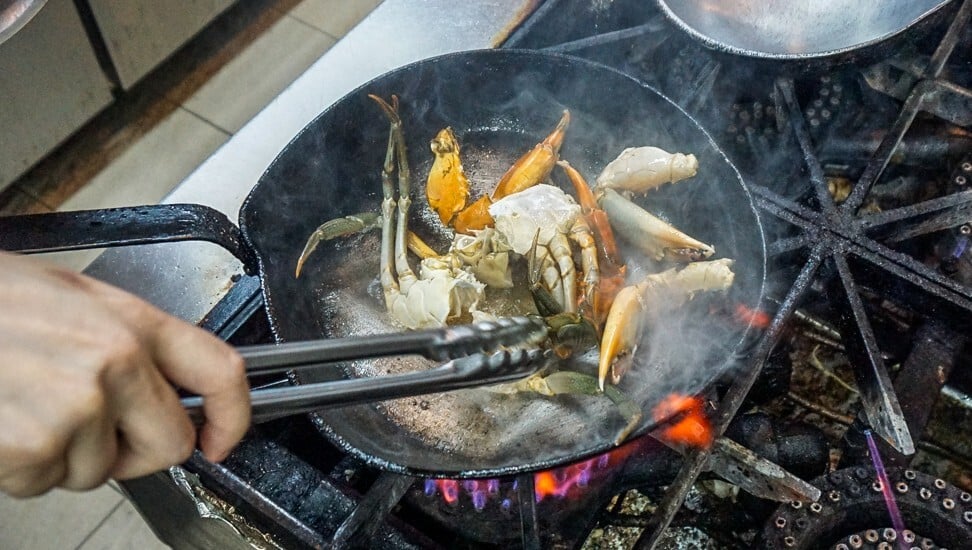
Why Hong Kong chef Sandy Keung quit finance to take up cooking
- The owner and executive chef of Table, in Sheung Wan, talks about her decision to switch careers
- Rather than going to culinary school, she volunteered to work at a French restaurant in Ho Chi Minh City
How did you get into cooking? “When I was young, I helped my mum sometimes. I was not afraid to pick up a knife, and I knew what to do with garlic and onion because mum told me. I learned basic cooking skills when I went to New York to study, from 1989 to 1993, and worked there as a CPA [Certified Public Accountant] until I came back to Hong Kong, in 1996.
“Personal tax here was lower than in New York so I suddenly had more disposable income to enjoy restaurants, and started developing my love for food. At the same time, I was concerned by how I looked. In New York, I was a petite size, but in Hong Kong I was a medium. I was mortified because I thought I was small.
“I started understanding the science behind food, what makes you fat, what’s yummy and what’s nutritious. I experimented, like, what would eating only apples for 10 days do to your body? You get very little energy, you get hungry a lot, but you lose weight.”
When did you start cooking? “In 2006, I moved to Vietnam as my dad was born and raised there. I moved there to do private equity investment in real estate. I needed to meet local people to start my network so I invited a lot of people to dinner parties at my home. They told me my food was wonderful, so instead of spending money to go to culinary school, I volunteered to work in a French restaurant called Cepage, in Ho Chi Minh City.

“It was my first experience in a professional kitchen, working part time for three years – I enjoyed it very much. I moved back to Hong Kong in 2009, as chief financial officer of a company. I was very busy and travelled a lot, but whenever I found time, I would cater parties for friends, who paid for the food cost.”
How did you come to own Table? “Over six years ago, I quit my job. The lady who owned this restaurant was also in finance but she didn’t cook and didn’t know how to run the kitchen, so I took over the business. My mum was very upset and didn’t talk to me for six months. She thought I had lost my marbles.
“I grew up in a traditional chauvinist family. I have an older brother and a younger sister. My dad was disappointed I was a girl. When I was about to go to university, he said I didn’t need to go because I was a girl, so my mum paid for my schooling because she felt she didn’t have that opportunity.
“She definitely got different treatment when she gave birth to my brother compared to when she gave birth to me, so she wanted to prove her husband’s side of the family incorrect. All her expectations and hopes were pinned on me, and I quit my finance job to be a cook. It was ironic because it was my dad who convinced her to come to my restaurant. We reconciled after that.”
How did you expand your business? “About a year after I had Table, I opened a roast-meat takeaway shop called Good BBQ. Even though this restaurant gratifies me in every way, my dream is to have my own restaurant, to cook every night.
“The microbusiness involves a lot of admin work, which takes away from my kitchen time. I needed to do something scalable so I could afford to hire an accountant and back office to help me with that unpleasant work. At the same time my mum realised I hadn’t completely gone crazy – and you cannot be mad at your daughter forever. I have five Good BBQ shops now.”

How did your interest in seafood come about? “When I was in finance I came across an opportunity to invest in an Australian company that did indoor fish farming. I thought it was a very interesting system because they recycled the water 100 per cent and the fish farm was on the 18th floor of an industrial building in Sha Tin.
“I thought, this is environmentally friendly and could potentially bring live products to inland China. I thought this would be a good business application so I made a small investment in it. While they were good scientists, they were not good at sales and kept burning money. I asked their local marine biologist what else could you do with the tanks to generate cash flow, and he told me about depuration.”
What is depuration? “It means providing a clean or suitable environment for bivalves or shellfish to purge themselves of metabolic waste and any impurities or pollutants. French oysters, by law, need to be depurated before export, but the problem is, it takes three days to get them to Hong Kong and they have been out of the water for that long.
“You need to depurate seafood at the destination – to let them go to the bathroom, clean up and rehydrate before they go to the restaurant. North American lobsters travelling to Hong Kong are given sleeping medicine to prevent them from fighting or struggling so much that they lose an arm or a claw during transit. If we consume the lobsters right away, because they are ‘fresh’, we end up ingesting the medicine.

“When we used to show people how to shuck oysters, I asked them to smell their fingers and there should be no smell. Once you’ve eaten depurated products, you can’t go back. So when I set up Table, I decided I must have a depuration tank.”
Do you have qualms about killing for the table? “When I’m cooking live products, I tell the animals how grateful I am, how grateful people will be, for their sacrifice. As humans we cannot survive without consumption, whether a plant or animal. I cook every day in the kitchen and I have hot oil splashes and many cuts. I often think those are the messages we get back, reactions to my actions.”
What do you do in your spare time? “I love music. I used to play piano, like any other good child in Hong Kong. I love all genres except I don’t understand Cantonese opera and rap music.
“On my days off I like to eat local traditional food and go to places for specific dishes like roast goose and lo shui goose. My favourite is Forum Restaurant. I love their fish tripe stir-fried with ginger and scallions, and with the right wine, it’s so good. They are famous for abalone, but I love their goose webs.”

